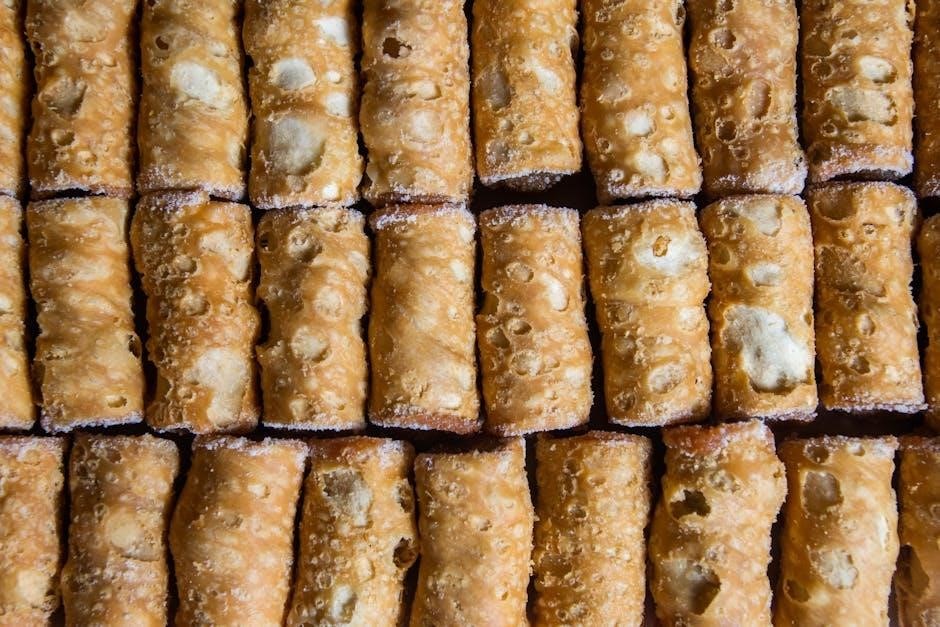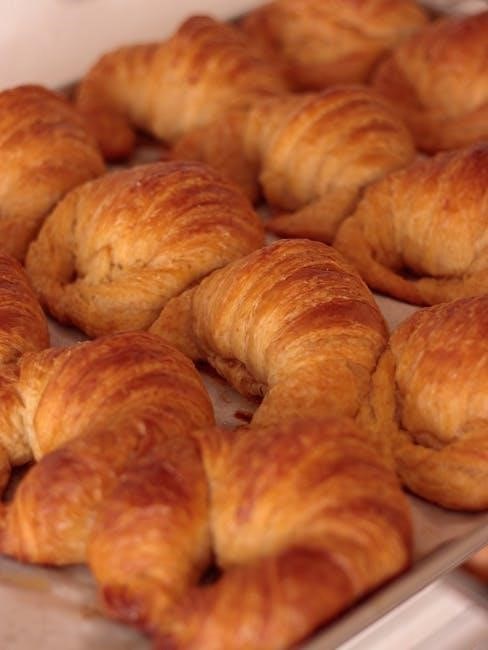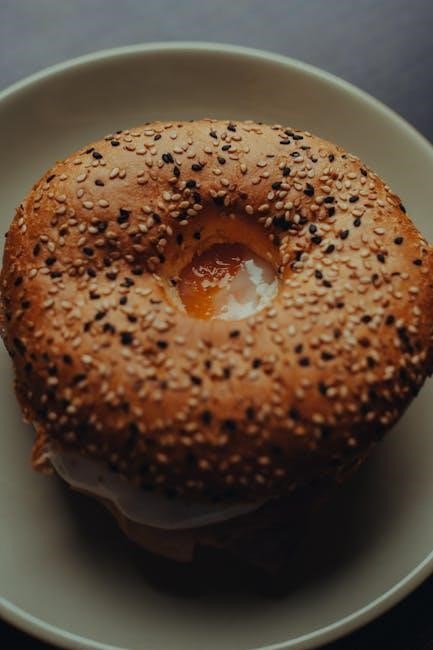
Discover the ultimate Zero Carb Foods List PDF‚ a comprehensive guide to low-carb eating. Explore 150+ zero-carb foods‚ including proteins‚ vegetables‚ and snacks‚ perfect for keto and low-carb diets.
Understanding the Importance of Zero Carb Diets
A zero carb diet focuses on eliminating carbohydrates to promote weight loss‚ improve blood sugar control‚ and reduce inflammation. By restricting carbs‚ the body enters ketosis‚ burning fat for energy. This approach is ideal for those with type 2 diabetes or insulin resistance. It also helps reduce cravings and increases energy levels by stabilizing blood sugar. Many find it effective for rapid weight loss and overall health improvement. The diet emphasizes whole‚ nutrient-dense foods like meats‚ fish‚ and non-starchy vegetables. Understanding its benefits helps individuals adopt this lifestyle confidently.
What to Expect in This Comprehensive Guide
This Zero Carb Foods List PDF offers a detailed breakdown of over 200 foods suitable for a zero-carb lifestyle. Organized into categories like proteins‚ vegetables‚ dairy‚ and snacks‚ it simplifies meal planning. Discover low-carb drink options and alcohol choices‚ ensuring you stay on track. The guide also includes tips for creating shopping lists and planning meals effectively. With its focus on nutrient-dense‚ whole foods‚ this resource helps you maintain a zero-carb diet effortlessly. Whether you’re a beginner or seasoned follower‚ this guide provides clarity and variety‚ making your dietary journey enjoyable and sustainable. It’s your ultimate companion for a successful zero-carb lifestyle.
Categories of Zero Carb Foods
Explore proteins‚ vegetables‚ dairy‚ and snacks tailored for a zero-carb diet. This guide categorizes foods to simplify your meal planning and shopping experience‚ ensuring a variety of options for every preference.
Proteins: Meats‚ Poultry‚ and Seafood
Meats‚ poultry‚ and seafood are cornerstone protein sources in a zero-carb diet. Beef‚ veal‚ lamb‚ and pork are excellent choices‚ as they contain no carbs. Opt for grass-fed and pasture-raised options for better nutritional profiles. Poultry like chicken‚ turkey‚ duck‚ and goose are versatile and carb-free‚ though be mindful of sauces or seasonings. Seafood options include tuna‚ salmon‚ shrimp‚ and oysters‚ all naturally low in carbs. Organ meats like liver‚ tongue‚ and heart are also nutrient-dense and zero-carb. These proteins can be prepared in various ways—grilled‚ baked‚ or sautéed—to keep meals exciting and satisfying. Always choose unprocessed‚ whole-food sources to avoid hidden carbs.
Vegetables: Low-Carb and Non-Starchy Options
Low-carb and non-starchy vegetables are essential for adding variety and nutrients to a zero-carb diet. Leafy greens like spinach‚ kale‚ and Swiss chard are excellent choices‚ with minimal carb content. Broccoli‚ cauliflower‚ and asparagus are also great options‚ offering fiber and vitamins. Cucumber‚ celery‚ and zucchini are versatile and can be used in salads or as snacks. These vegetables are naturally low in carbs and rich in nutrients‚ making them ideal for maintaining a balanced diet. They can be prepared through steaming‚ roasting‚ or sautéing‚ and they pair well with proteins for a satisfying meal. Always opt for fresh‚ unprocessed varieties to avoid hidden carbs.

Dairy Products: Low-Carb and High-Fat Choices
Dairy products are a great addition to a zero-carb diet‚ offering essential nutrients and richness. Hard cheeses like cheddar‚ Parmesan‚ and mozzarella are low in carbs and high in fat‚ making them ideal choices. Soft cheeses such as brie and goat cheese are also suitable‚ though they may contain slightly more carbs. Full-fat dairy options like heavy cream‚ unsweetened yogurt‚ and butter are excellent for adding flavor and creaminess to meals. Eggs‚ while technically not dairy‚ are often included in this category due to their versatility and nutritional value. These high-fat‚ low-carb dairy products provide sustained energy and can enhance the flavor of zero-carb dishes. Always choose unprocessed‚ full-fat varieties to maximize benefits.
Snacks: Healthy and Zero Carb Options
Snacking on a zero-carb diet can be delicious and satisfying with the right choices. Hard cheeses like cheddar‚ mozzarella‚ and Parmesan are excellent options‚ as they are naturally low in carbs and high in fat. Nuts such as macadamia nuts‚ almonds‚ and walnuts are also great‚ but be mindful of portion sizes due to their higher calorie content. Vegetables like celery‚ cucumber‚ and bell peppers can be paired with dips like almond butter or cream cheese for a quick‚ guilt-free snack. Additionally‚ pork rinds and zero-carb beef jerky are convenient options for on-the-go. Always opt for unprocessed‚ whole-food choices to stay aligned with your zero-carb lifestyle.

Beverages and Alcohol on a Zero Carb Diet
Stay hydrated with water‚ sparkling water‚ and black coffee or tea. For alcohol‚ opt for spirits like gin or rum‚ avoiding sugary mixers and carb-rich beers.

Low-Carb and Zero Carb Drink Options
Zero-carb and low-carb drink options are essential for maintaining a ketogenic or low-carb lifestyle. Water‚ sparkling water‚ and black coffee are excellent choices‚ offering hydration without any carbs. Black tea and herbal teas are also great alternatives‚ providing antioxidants and flavor; For those who prefer something sweeter‚ sugar-free beverages like diet soda can be consumed in moderation. Additionally‚ coconut water is a natural‚ low-carb option that replenishes electrolytes; When choosing drinks‚ always check the label to ensure they align with your dietary goals and avoid hidden sugars or carbs. These options make it easy to stay on track while enjoying variety in your beverage choices.
Alcohol Choices: What’s Allowed and What’s Not
When following a zero-carb diet‚ alcohol choices must be carefully considered. Gin and rum are popular options‚ as they are naturally low in carbs. However‚ sweetened mixers and cocktails should be avoided due to their high sugar content. Vodka and whiskey are also acceptable‚ but always opt for pure‚ unflavored varieties. Beer and wine‚ especially sweet wines‚ are typically high in carbs and should be avoided. For those who enjoy occasional drinks‚ sticking to hard liquors and pairing them with low-carb mixers like seltzer water or unsweetened tonic is the best approach. Moderation is key to maintaining a zero-carb lifestyle while still indulging in alcohol responsibly.
How to Use Your Zero Carb Foods List PDF
Your Zero Carb Foods List PDF is a valuable tool designed to simplify your low-carb journey. Use it to identify and incorporate nutrient-dense‚ carb-free foods into your meals. Print the guide and refer to it while planning balanced meals and snacks. Categorize the foods into proteins‚ vegetables‚ and dairy for easy navigation. Create a shopping list based on the PDF to ensure you only purchase approved items. Track your daily intake using the list to maintain accountability and stay motivated. Additionally‚ use the guide to make informed choices when dining out by selecting menu options that align with zero-carb principles. This resource not only helps you make healthier choices but also aids in long-term adherence to your dietary goals.
Creating a Shopping List for Success
Creating a shopping list is essential for adhering to a zero-carb diet. Start by categorizing foods into proteins‚ vegetables‚ and dairy. Include lean meats like chicken‚ beef‚ and fish‚ as well as low-carb vegetables such as spinach and kale. Dairy options like cheese and eggs are also key. Use the Zero Carb Foods List PDF to identify approved items and avoid high-carb alternatives. Plan meals for the week to ensure your list is comprehensive. Print the PDF and check off items as you shop to stay organized. Regularly update your list based on sales or seasonal availability to keep your diet fresh and exciting. A well-planned shopping list ensures you stay on track and enjoy delicious‚ carb-free meals.
Meal Planning Tips for a Zero Carb Lifestyle
Meal planning is crucial for a successful zero-carb lifestyle. Start by planning weekly meals‚ ensuring variety and nutrient balance. Use the Zero Carb Foods List PDF to identify approved ingredients and avoid carb-heavy options. Stock your pantry with essentials like meats‚ low-carb vegetables‚ and healthy fats. Keep meals simple by focusing on whole foods rather than complex recipes. Incorporate a mix of proteins‚ such as beef‚ chicken‚ and fish‚ paired with non-starchy vegetables like spinach and broccoli. For breakfast‚ consider eggs or cheese‚ and for snacks‚ opt for nuts or zero-carb alternatives. Regularly refer to your list to stay on track and enjoy flavorful‚ satisfying meals.

Benefits of a Zero Carb Diet
A zero-carb diet promotes weight loss‚ improves blood sugar control‚ reduces inflammation‚ and boosts energy levels‚ supporting overall health and well-being through nutrient-dense‚ whole foods.

Weight Loss and Improved Blood Sugar Control
A zero-carb diet is highly effective for weight loss‚ as it eliminates insulin spikes and promotes fat burning. By cutting out carbohydrates‚ the body transitions to ketosis‚ using stored fat for energy. This metabolic shift often leads to rapid weight reduction‚ particularly in visceral fat. Additionally‚ zero-carb diets help stabilize blood sugar levels by avoiding glucose spikes‚ making it beneficial for those with type 2 diabetes or insulin resistance. The focus on whole‚ nutrient-dense foods also enhances overall metabolic health‚ supporting long-term weight management and improved glycemic control. This approach not only aids in shedding pounds but also fosters a healthier relationship with food and metabolism.

Reduced Inflammation and Increased Energy Levels

A zero-carb diet can significantly reduce inflammation by eliminating foods that often trigger inflammatory responses‚ such as sugars and refined carbohydrates. This reduction in inflammation can lead to improved overall health and wellness. Additionally‚ many people report increased energy levels when following a zero-carb lifestyle. By focusing on nutrient-dense foods like meats‚ fish‚ and low-carb vegetables‚ the body transitions to burning fat for fuel‚ which can provide sustained energy without the crashes associated with carbohydrate intake. This metabolic shift often results in enhanced mental clarity and physical endurance‚ making it easier to maintain a active and healthy lifestyle.
 what stock trade in conjunction with qqq options pdf
what stock trade in conjunction with qqq options pdf  the very hungry caterpillar printables pdf free
the very hungry caterpillar printables pdf free  ged social studies practice test pdf
ged social studies practice test pdf  i modi the sixteen pleasures pdf
i modi the sixteen pleasures pdf  elliott wave theory pdf
elliott wave theory pdf  medium sudoku printable pdf
medium sudoku printable pdf  lifebreath digital wall control manual
lifebreath digital wall control manual